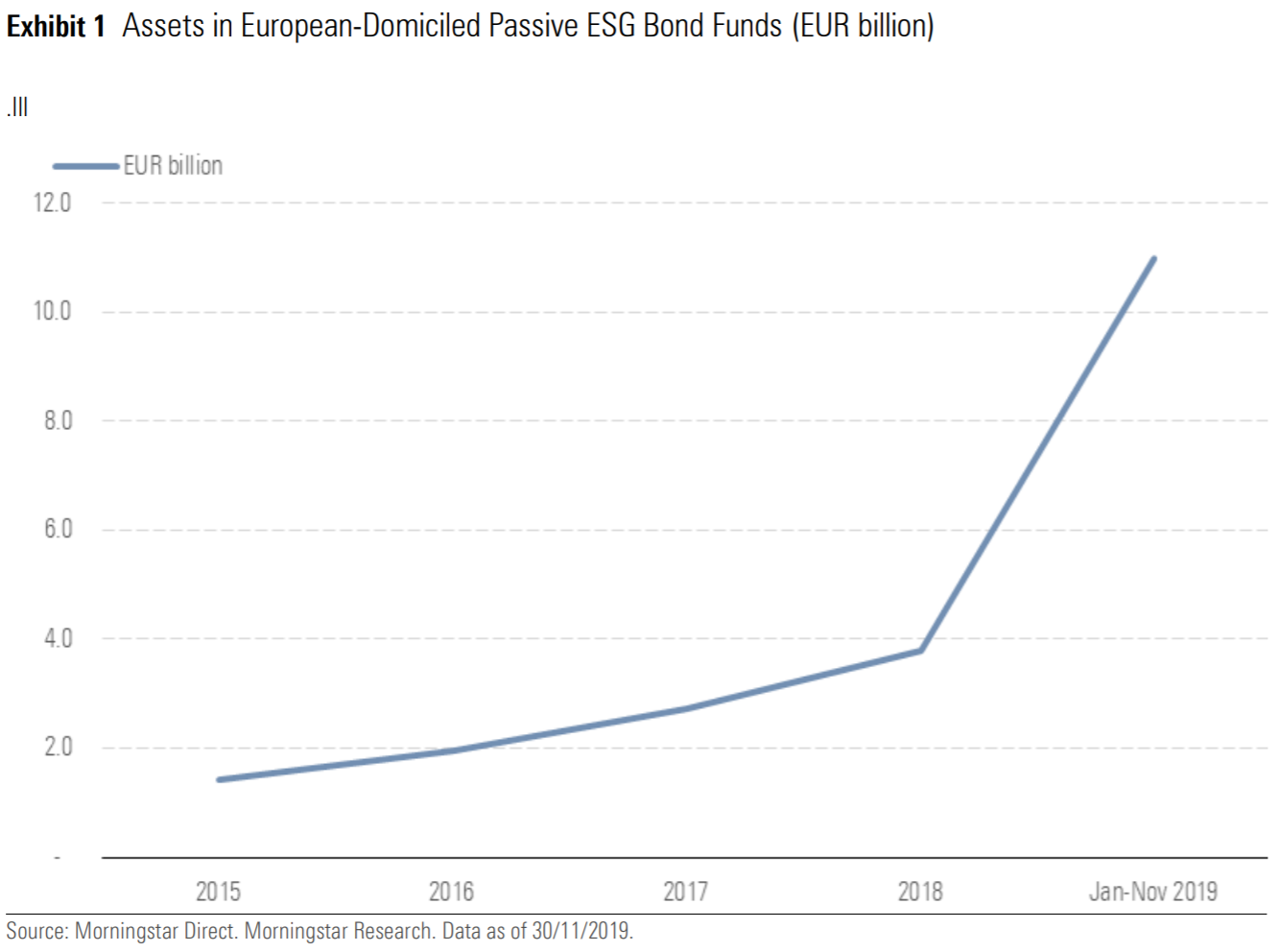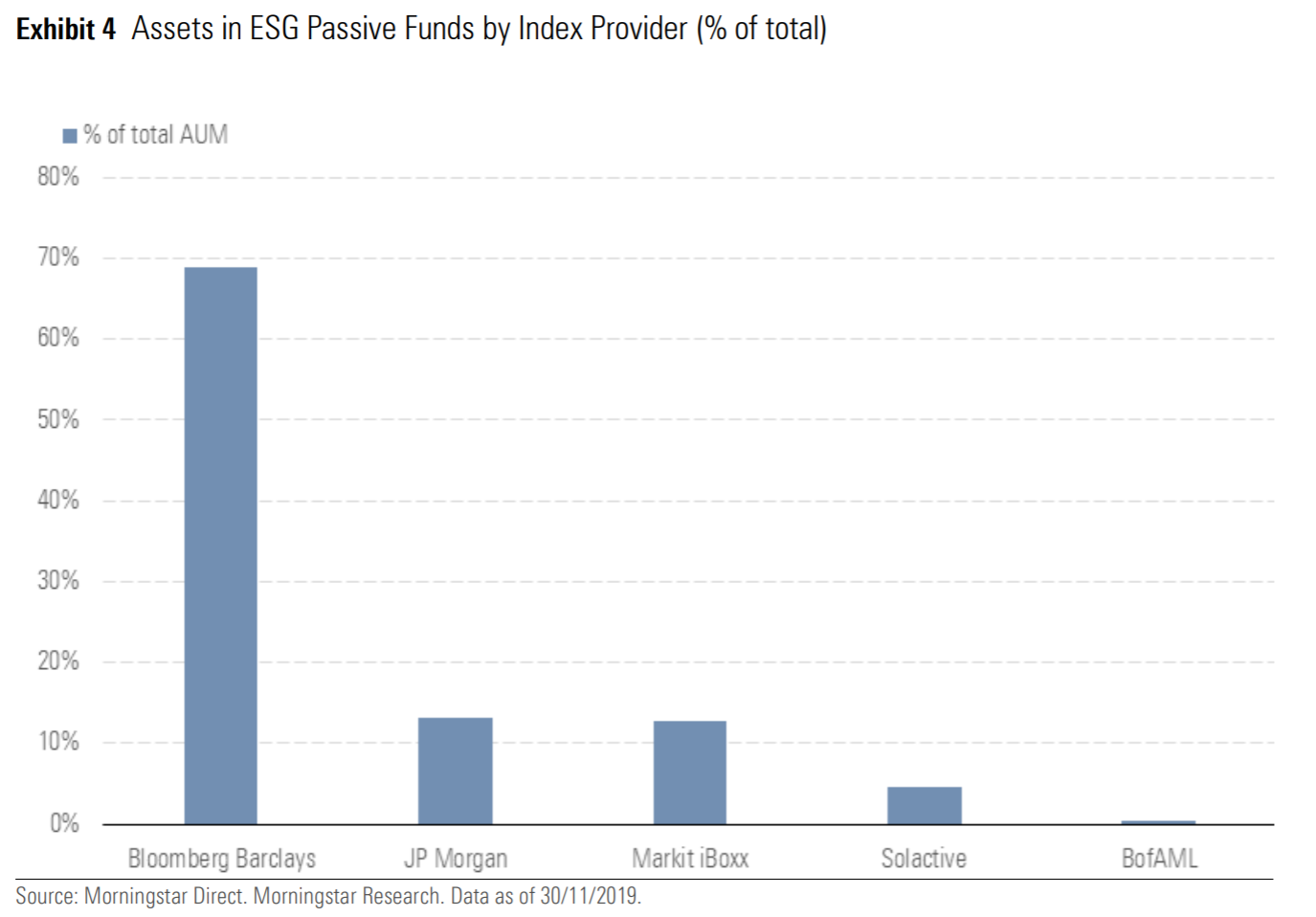The passive environmental, social and governance (ESG) bond market is “ripe for expansion” in Europe, according to a Morningstar report.
According to the report, entitled European Passive ESG Bond-Fund Landscape, assets in passive bond funds with an explicit ESG mandate tripled to €11bn since the end of 2018, as at last November.
This represents just 5% of ESG bond market compared to passive ESG equities which account for 30% of ESG equity funds.

Jose Garcia-Zarate (pictured), associate director, passive strategies research, EMEA, at Morningstar and co-author of the report, predicted this growth to continue.
Along with ESG considerations becoming key selection criteria for investors, he explained good management of ESG risks could make issuers more resilient to credit-rating downgrades or default.
“This is what ultimately matters most to bond investors,” Garcia-Zarate added. “The market of ESG passive-bond funds in Europe remains small and underdeveloped compared with equity.
“Prospects are positive. The conditions are thus ripe for expansion of the ESG passive-bond-fund offering in Europe – especially considering that fixed income has been identified as one of the key areas of growth in the coming decade by passive-fund providers.”
Investment grade corporates dominate
Investment grade corporate bonds continue to be the segment of the market issuers are focusing on. Some 17 of 36 passive ESG bond funds available in Europe are in the IG corporate bond market, accounting for 68% of all assets invested.
There were just five funds with a focus on developed-government bonds with an ESG tilt, however, this is for a number of reasons.
According to Garcia-Zarate, applying ESG criteria to governments is “no easy matter” as there is a fine line between making and objective ESG assessment and moving into political territory.
“Taking a stand against the policies of an elected government, even if rationalised from an ESG perspective, is something that individual investors may find easy to do; however, large asset managers or ESG-rating companies risk being accused of unduly interfering with a political process,” he continued.
There are some methods issuers can take however such as focusing on social and macroeconomic indicators like data on labour markets and educational standards.
This approach, the report said, is more successful for emerging markets due to the greater disparity in risk-return profiles and macroeconomic conditions.
Furthermore, it is unlikely issuers will want to create an ESG fund that excludes the US bond market – the world’s largest – from its methodology following its decision to withdraw from the Paris Climate Accord, Garcia-Zarate added.
“In the case of developed sovereigns, applying ESG filters can lead to outcomes that are difficult to implement.”
ETF Insight: Are ETF and index providers taking ESG seriously?
In terms of index providers, Bloomberg dominates the market controlling 69% of assets in the passive ESG bond space in Europe. Behind Bloomberg is JP Morgan, Markit iBoxx and Solactive.
“Bloomberg is the dominant force in ESG bond indexes for developed markets,” the report said. “Bloomberg and MSCI have joined forces in the development of ESG bond indices, the former providing the expertise on bond-index construction, while the latter provides the framework to screen-issuers on ESG criteria.”




